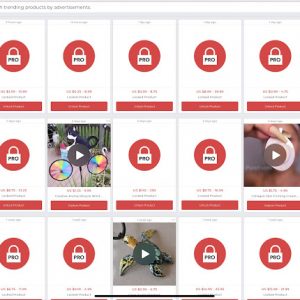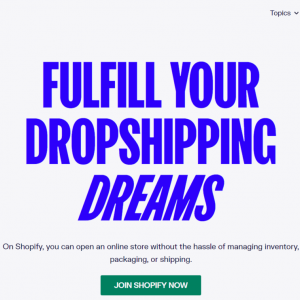As consumers become more conscious of their shopping habits, they’re looking not only for eco-friendly products. They’re also concerned about sustainable business practices across the board.
Millions of items are shipped from Shopify businesses on a daily basis in the United States alone. The way these purchases are packaged and shipped has a major impact on the planet—and customers are taking note.
We spoke to eight founders about their sustainability practices, including eco-friendly packaging options and how they’re shipping and fulfilling their orders with the environment in mind.
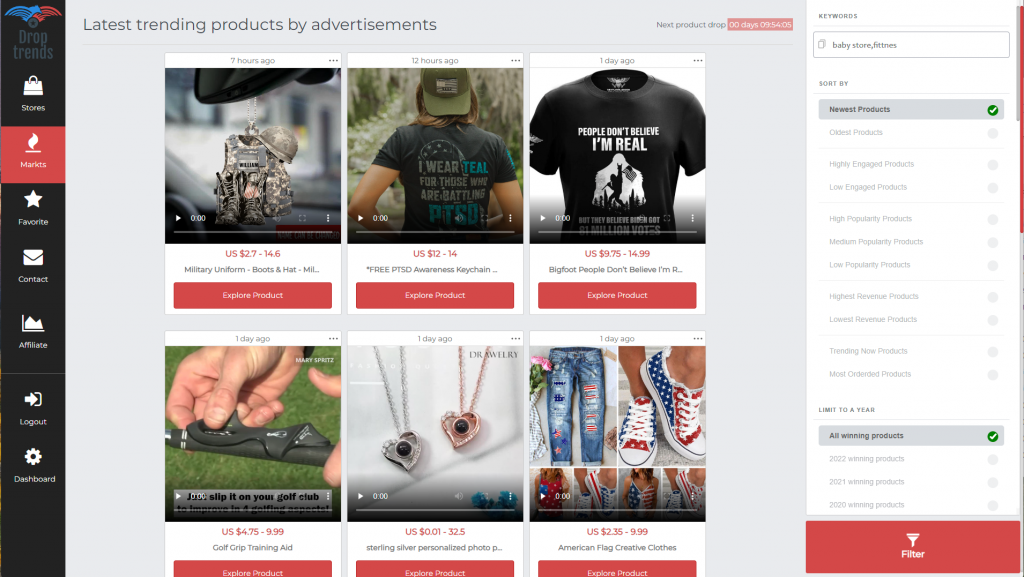
8 eco-friendly packaging tips
Let’s dive into each of these eco-friendly packaging ideas, with advice from ecommerce business owners on everything including recyclable packaging, compostables, sustainable alternatives to plastic bags, filler, and more.
1. Offer carbon-neutral shipping by offsetting emissions
Eric and Yana Dales met while doing humanitarian aid work in Dhaka, Bangladesh. Being in a garment manufacturing hub, the Dales saw the environmental drain and social impact of fast fashion. In response to the unsustainable raw materials, plastic packaging, and poor labor conditions of these companies, they created the fashion company they wanted to see in the world.
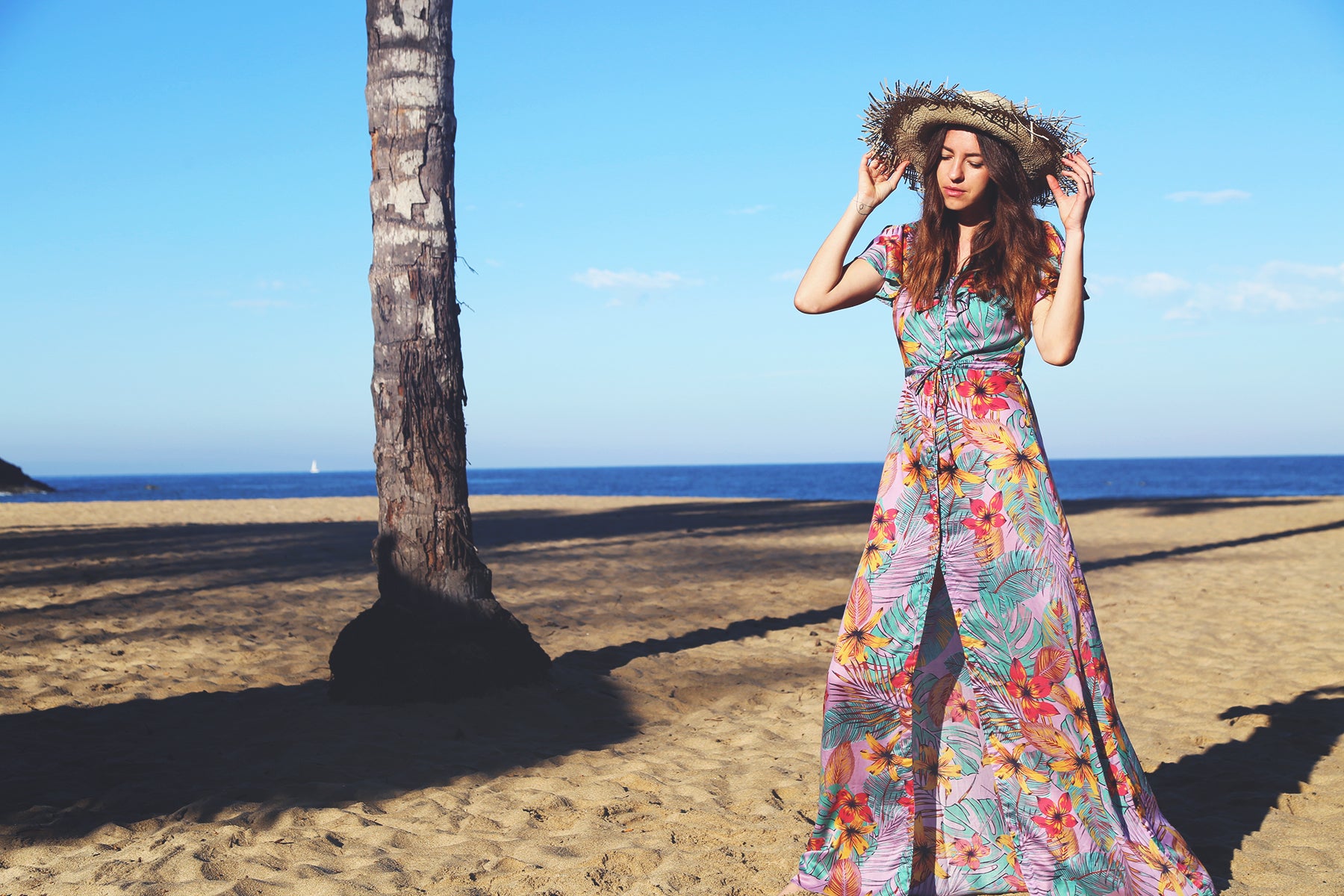
The couple started TAMGA Designs, a sustainable clothing brand that aims to be style-, people-, and planet-conscious.
Their main objective is to not contribute to the deforestation taking place in ancient Indonesian jungles. They found a production partner that produces fabric from sustainably grown eucalyptus and beechwood trees to create pieces colored with low-impact dyes.
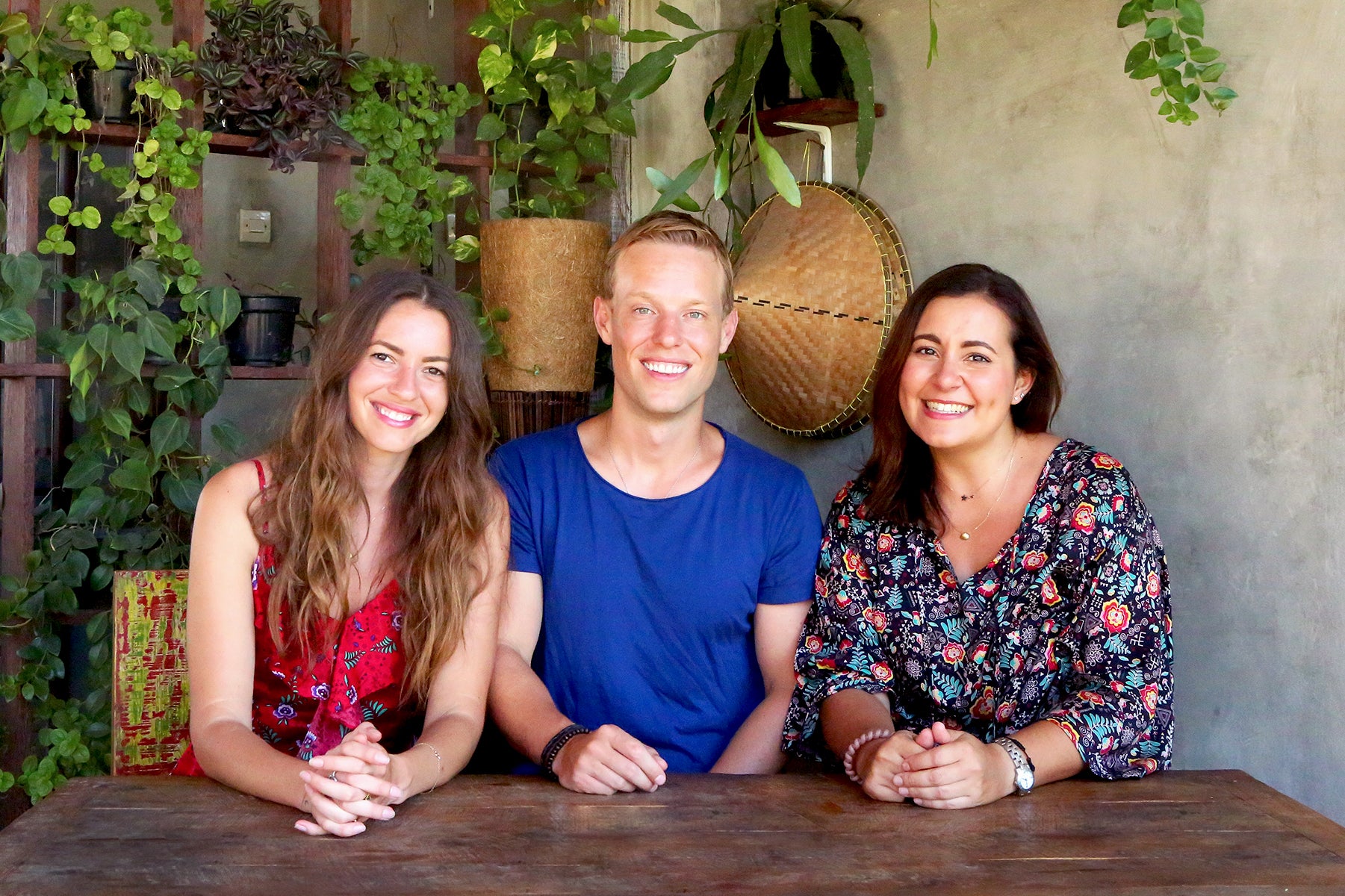
Still, their garments are sourced in Asia, travel to their facilities in Canada, then ship out to consumers in more than 25 different countries. With all the miles their garments are traveling, the Dales set their sights on becoming a carbon-neutral company. “We looked at the carbon emissions per kilometer per kilogram of garments on different modes of transportation,” says Eric. “We have a big spreadsheet, and at the end of the month, we put together a tally and purchase offsets on those emissions.”
TAMGA shares its process openly in the hope of creating systems other businesses will follow.
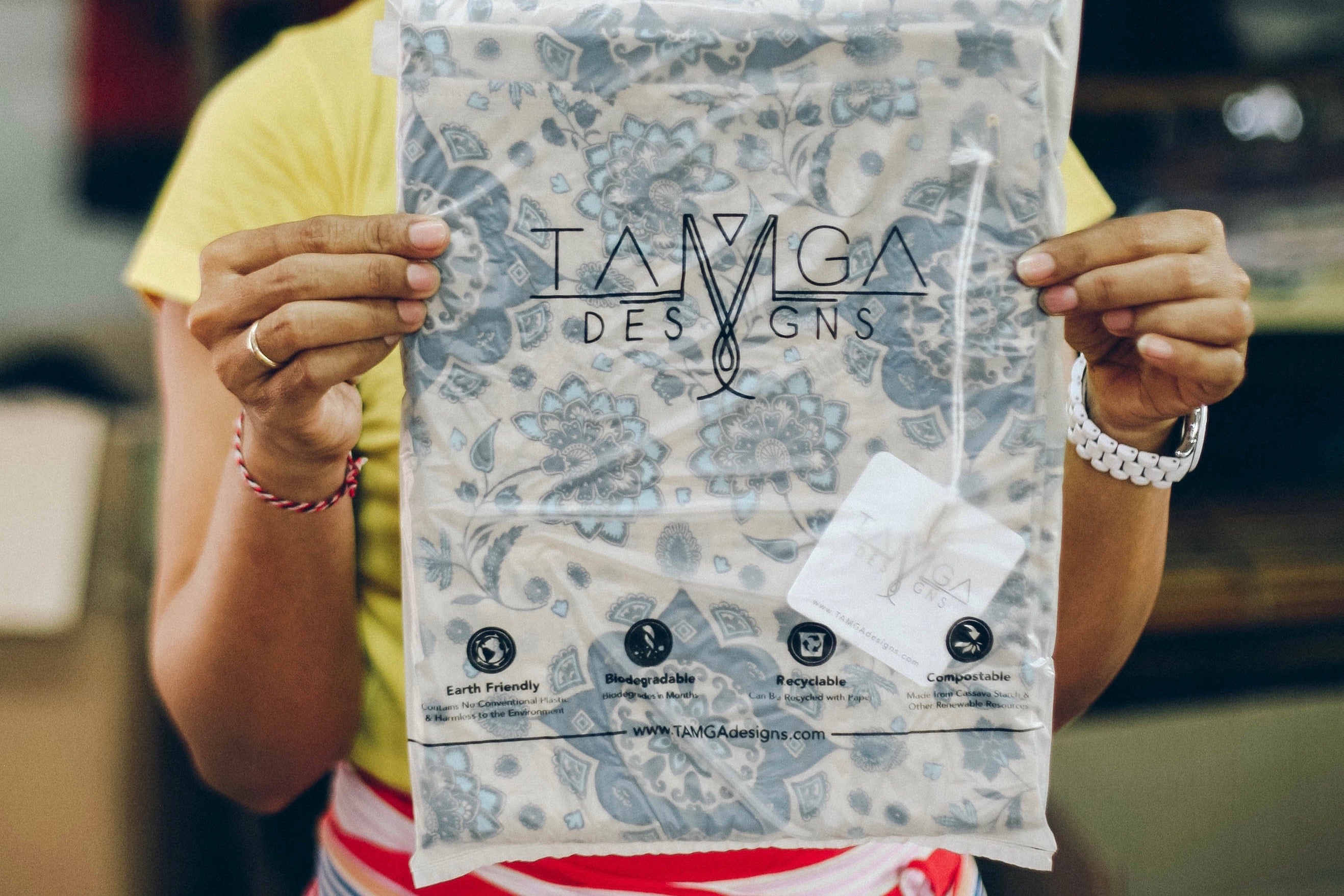
TAMGA Designs also packages each of its garments in eco-friendly packaging materials, specifically, 100% biodegradable cassava-based mailers. This compostable packaging solution replaces conventional plastic or kraft mailers.
“It’s really important for small businesses to know this isn’t something that is going to take away from their profitability,” Eric says. “In the long run, we honestly believe it’s a net-positive impact on our bottom line, because customers do see it and they do value it.”
2. Ship items in bulk
Harriet Simonis, David Fragomeni, and Scott Ferguson first became friends while living in Bali. When surfing the local waves, they were distressed to find that the ocean was overflowing with single-use plastic packaging and discarded fishing nets. That moment served as the catalyst to adopt the zero-waste lifestyles they still practice today. As they searched for plastic-free and eco-friendly products, they realized something ironic. “A lot of environmentally friendly products come affixed in plastic,” Harriet says. “It almost undoes the good.”
Determined to create an eco-friendly solution, the trio founded Zero Waste Cartel, a brand of bath, body, and kitchen products in biodegradable or reusable packaging.

Their pledge to go plastic-free came with its own set of distinct challenges. For example, Harriet says the company had a hard time finding a warehouse that would actually use the compostable mailers they provided because of the additional time and effort involved.
They’ve since found a suitable partner in the United States, where most of their orders are placed, which further reduced their environmental impact by shortening the shipping distance between warehouse and customers.

“We prefer to ship in bulk, for the dual reason that it’s a better value for customers and better for the environment too,” Harriet says. Zero Waste Cartel only sells its bamboo toothbrushes in packs of 10 to encourage customers to plan their purchases or share orders, so that products can ship in a more sustainable manner. What might otherwise seem like an inflexible policy has resonated with Zero Waste Cartel’s customers, who see value in bulk purchases for the planet and their own wallets.
3. Use sustainable packaging materials that can be repurposed
Since 2016, Roth Martin and Stephen (Hawthy) Hawthornthwaite have created high-end, durable, and machine-washable footwear made from plastic water bottles, under the moniker Rothy’s. With products that place style and sustainability on equal footing, Rothy’s counts Duchess of Sussex Meghan Markle and supermodel Karlie Kloss as fans.
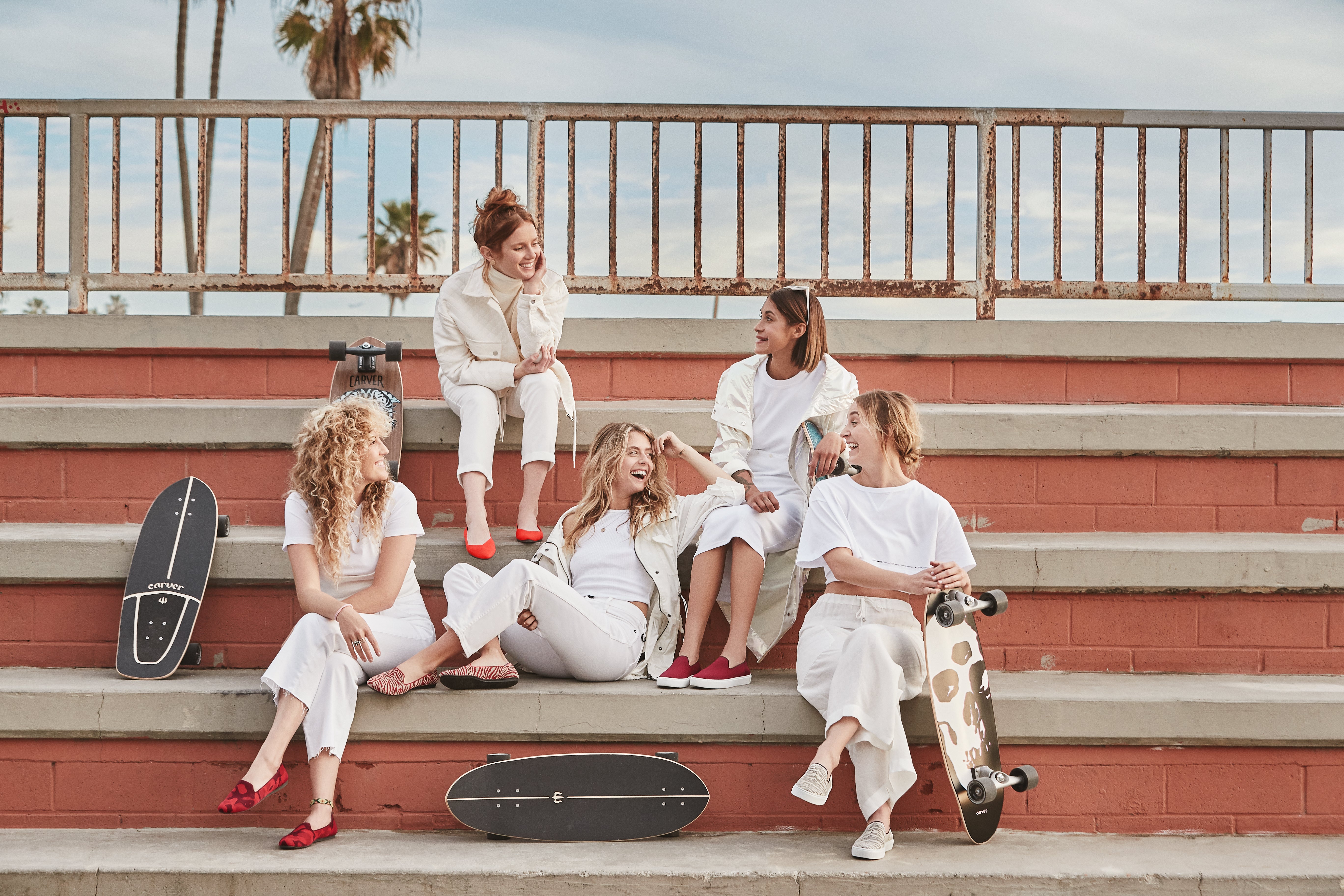
Lauren Taflinger, Rothy’s director of production, says the company has recycled and repurposed more than 34 million water bottles to date. Rothy’s production process also knits shoe uppers to shape, which creates virtually zero waste, unlike traditional cutting, where 30% to 40% of material is wasted.
Like TAMGA Designs, Rothy’s also offsets its carbon emissions from production and fulfillment by partnering with the Envira Amazonia Project to fund ecosystem services and forest conservation projects.

Rothy’s team took a logical approach to reduce waste in its shipping and packaging practices. “Rather than shipping a box within a box, our shoeboxes are the vehicle for both shipping and returns,” Lauren says. Rothy’s vegan, biodegradable boxes are made from 85% post-consumer recycled materials. Rothy’s hopes to reduce the additional use of paper cards and make their boxes even more versatile.
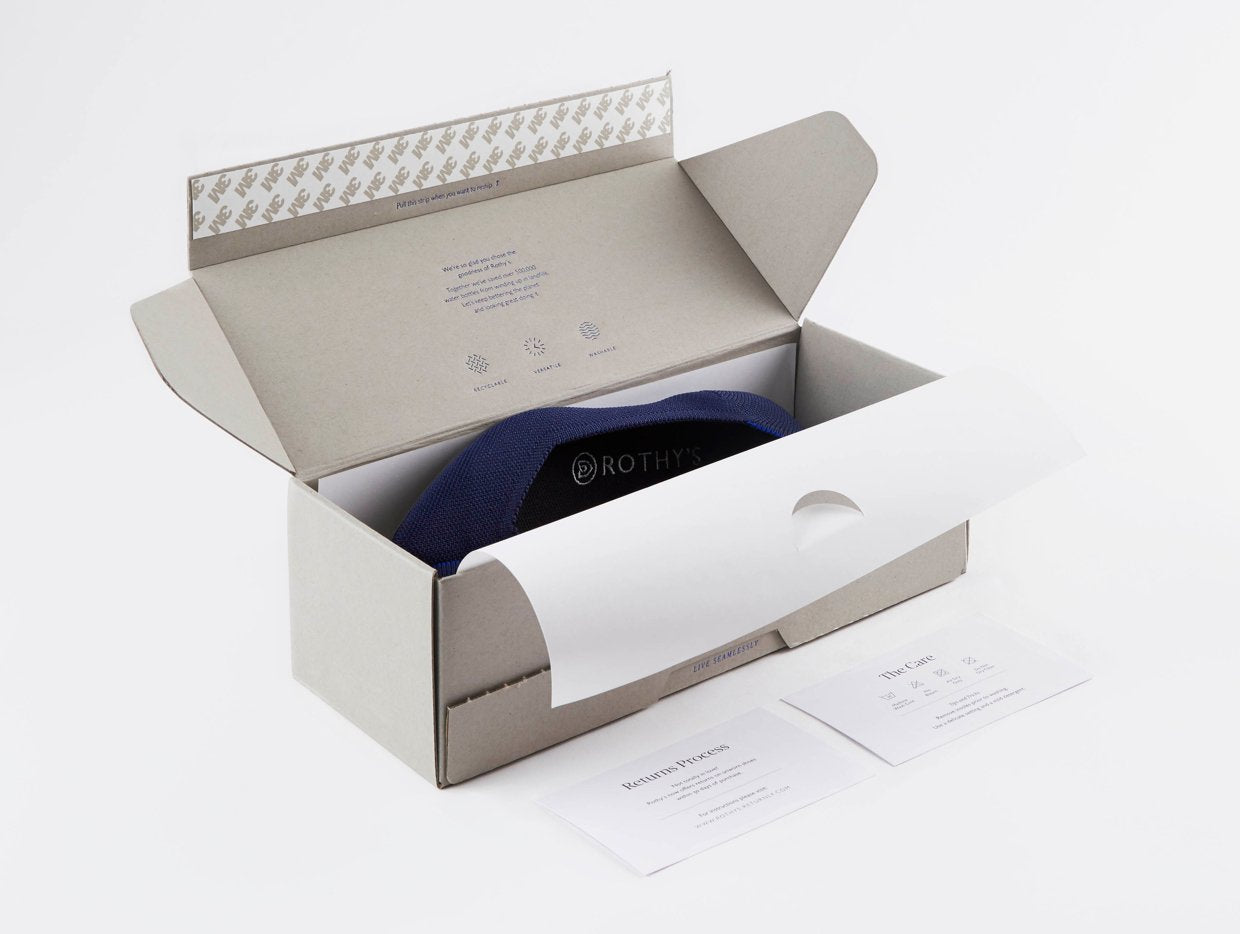
When it comes to sustainability, Rothy’s take, from products to packaging, is all about reimagining the details so that every component of a customer’s order produces less waste.
4. Offer a returns program for your empty product containers
Visual artists Tara Pelletier and Jeff Kurosaki are the life and business partners behind Meow Meow Tweet, an organic skin care company that features adorable animal illustrations on its eco-friendly product packaging. The couple’s love of animals, also the motivation behind their vegan lifestyle, eventually inspired them to create products made with organic unrefined plant oils, cold-pressed essential oils, and botanicals.
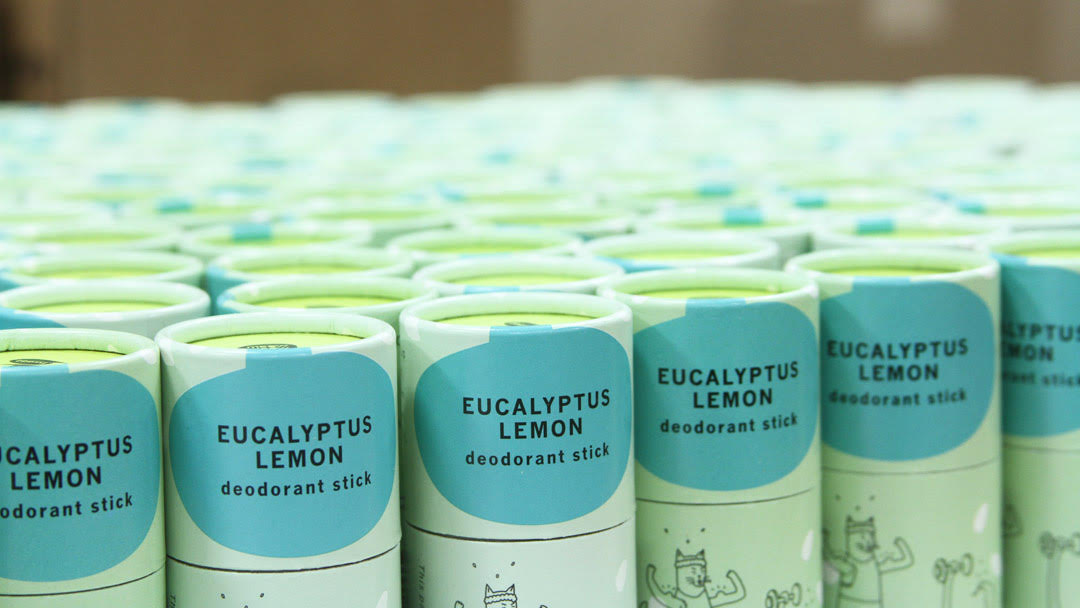
Jeff and Tara want everything they create to either return back to the earth or be reusable. In pursuit of that goal, they use biodegradable packing peanuts as filler and non-reinforced paper tape throughout their environmentally friendly shipping process. Their solid products, like deodorants, soaps, and lip balms, come in biodegradable kraft packages, while liquid products like cleansers, toners, and sunscreen, are packaged in recyclable packaging like glass or aluminum bottles. Plastic pumps can be recycled by their partner, TerraCycle.
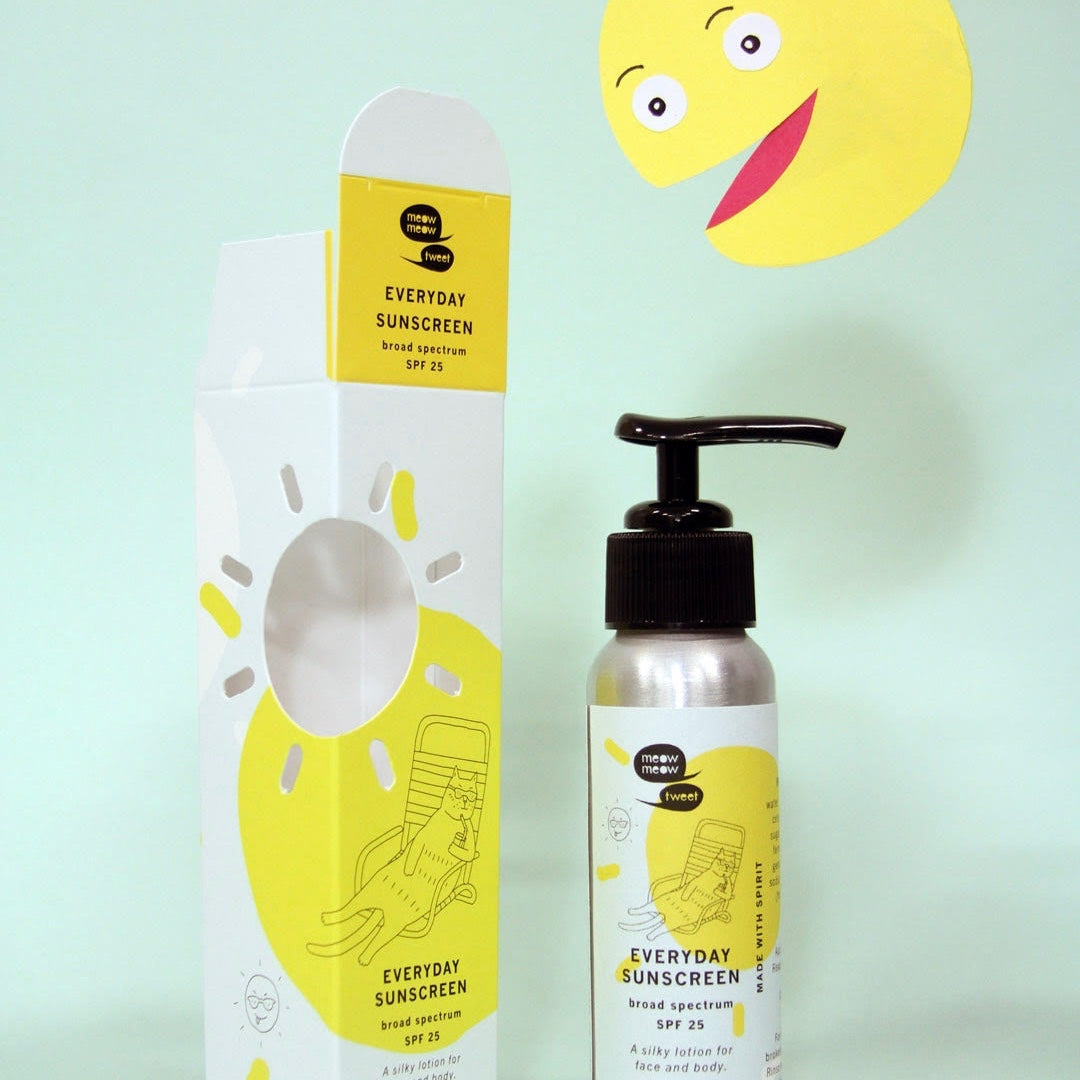
The company offers a bulk return program for its empty bottles and containers through Returnly, a Shopify app that allows customers to mail back reusable packaging to be sterilized and refilled. With this system in place, customers are embracing the imperfections of dents and scuffs, while reducing the impact of disposable culture.
5. Recycle on behalf of your suppliers and offer shipping-friendly items
In 2017, husband and wife team Lily and Max Cameron founded Wild Minimalist to offer sustainable alternatives to single-use plastic items. “We serve this growing community of people who want to move away from mindless consumption of things that end up in a landfill,” says Max.
Wild Minimalist sells renewable bamboo cutlery, reusable coffee cups, food packaging like produce bags, and wooden cleaning brushes—simple alternatives to the many disposable items people use every day.
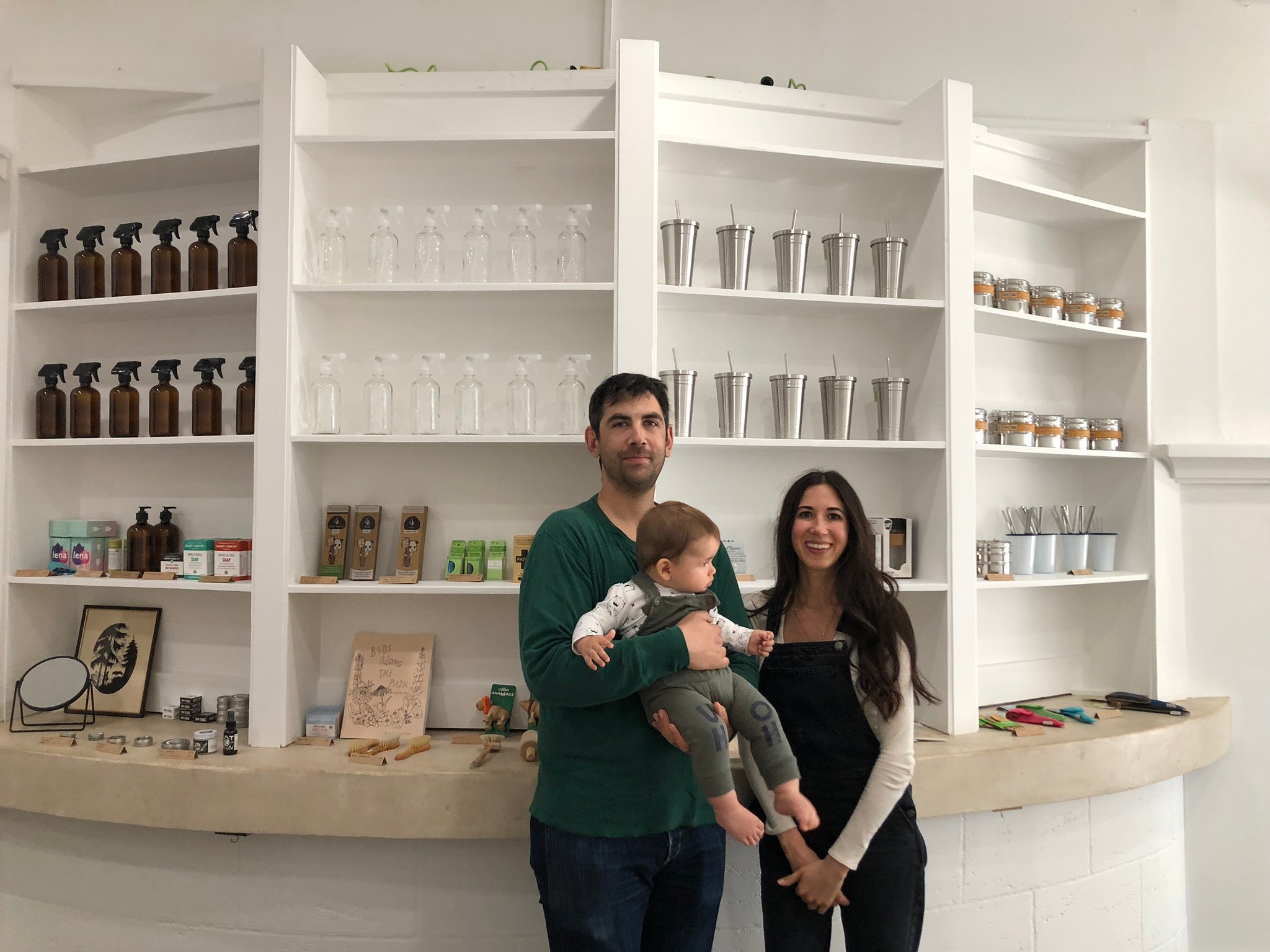
Unfortunately, US regulations require that items imported into the country be wrapped in plastic, but there’s no requirement for these plastic bags, wrap, and pouches to be recycled. The Camerons now ask suppliers to ship items in their original packaging so that they can complete the recycling process on their behalf and avoid any unnecessary waste caused by repackaging. “We want to take responsibility for the upstream waste where we can,” says Max.
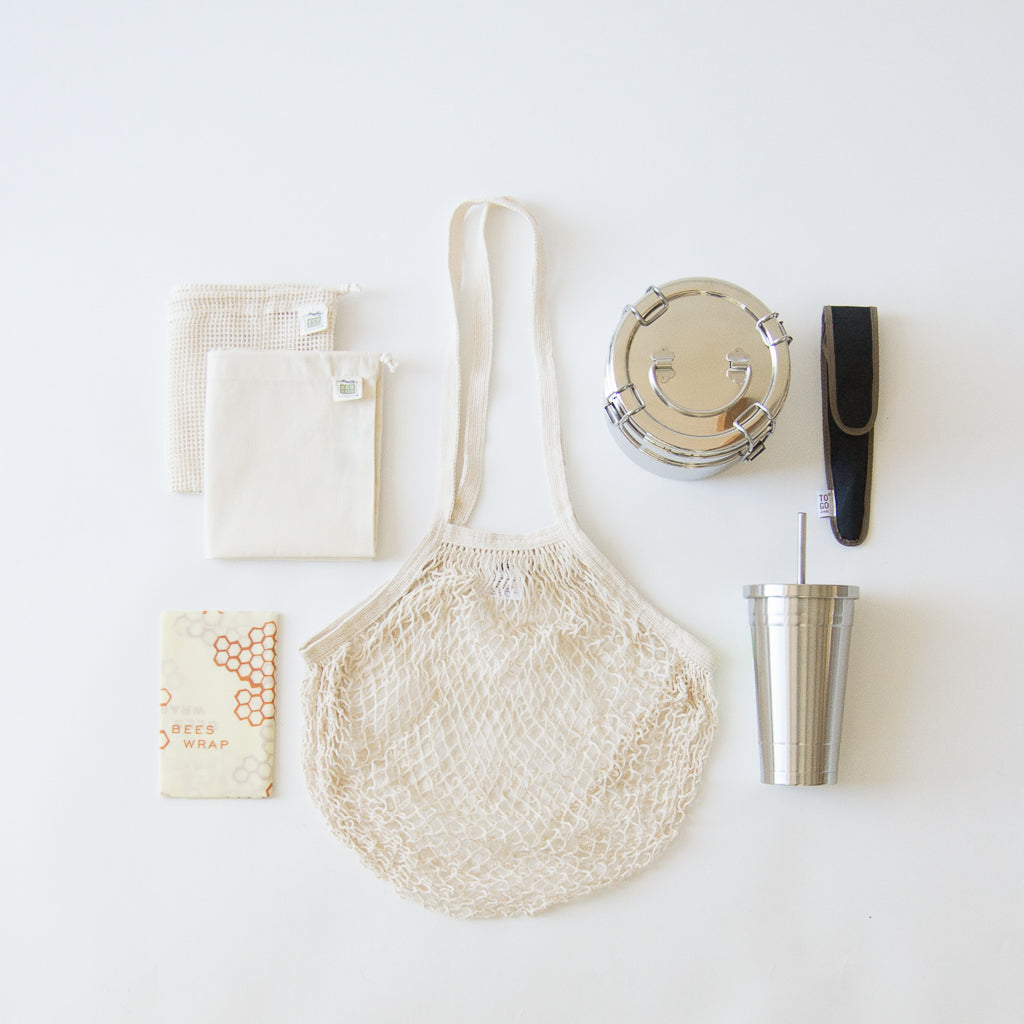
Lily and Max have also adapted their product offerings to ship easier and have a lower carbon footprint. “We used to carry a lot of glass jars, which are very popular in the zero-waste community,” says Max. But sustainably shipping glass requires bubble wrap cushioning, so the brand no longer carries glass items. From taking responsibility for upstream waste and adjusting their product line, Lily and Max are operating with a sustainability-first mentality in all areas of their business.
6. Work with wholesalers to reduce individual shipments and limit return shipping
In the beauty industry, it seems like there’s an unavoidable trade-off between sustainability and effectiveness. That’s the exact issue Arden Teasdale and Hayley McKenzie, founders of Unwrapped Life, set out to tackle. “We wanted to ensure that any products from our company have very limited to no impact at their end of life,” Arden says. Unwrapped Life’s signature shampoo and conditioner bars come wrapped in compostable packaging, leaving behind virtually no waste.
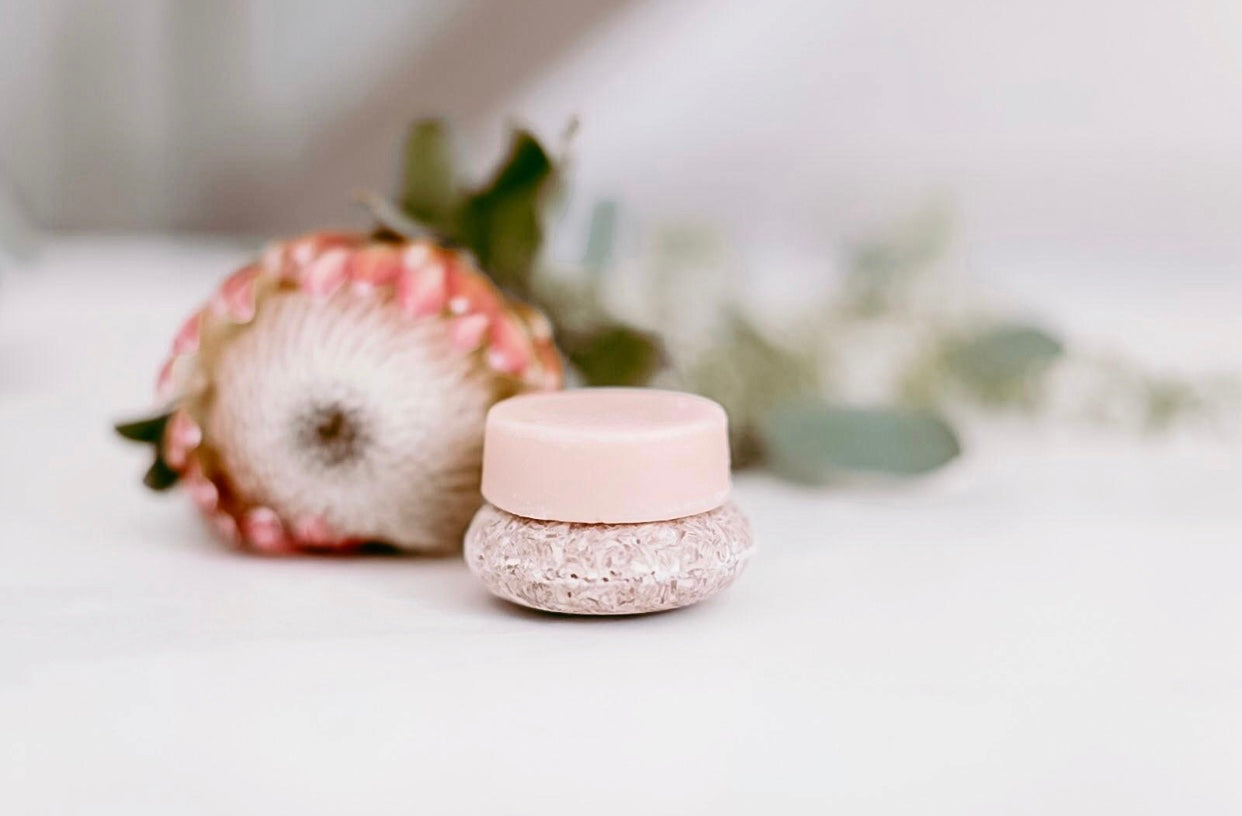
This no-waste mentality is also being adopted in other areas of the company’s operation. “Our entire packaging process is paperless. We’re fulfilling and shipping orders off of phones and tablets, without printing packing slips,” says Arden.
Employees have embraced this mentality by ditching single-use plastics and adopting reusable drinkware and compostable coffee filters for the office. “We’ve all really changed our lifestyles to cater to this company and its mission,” Arden says.
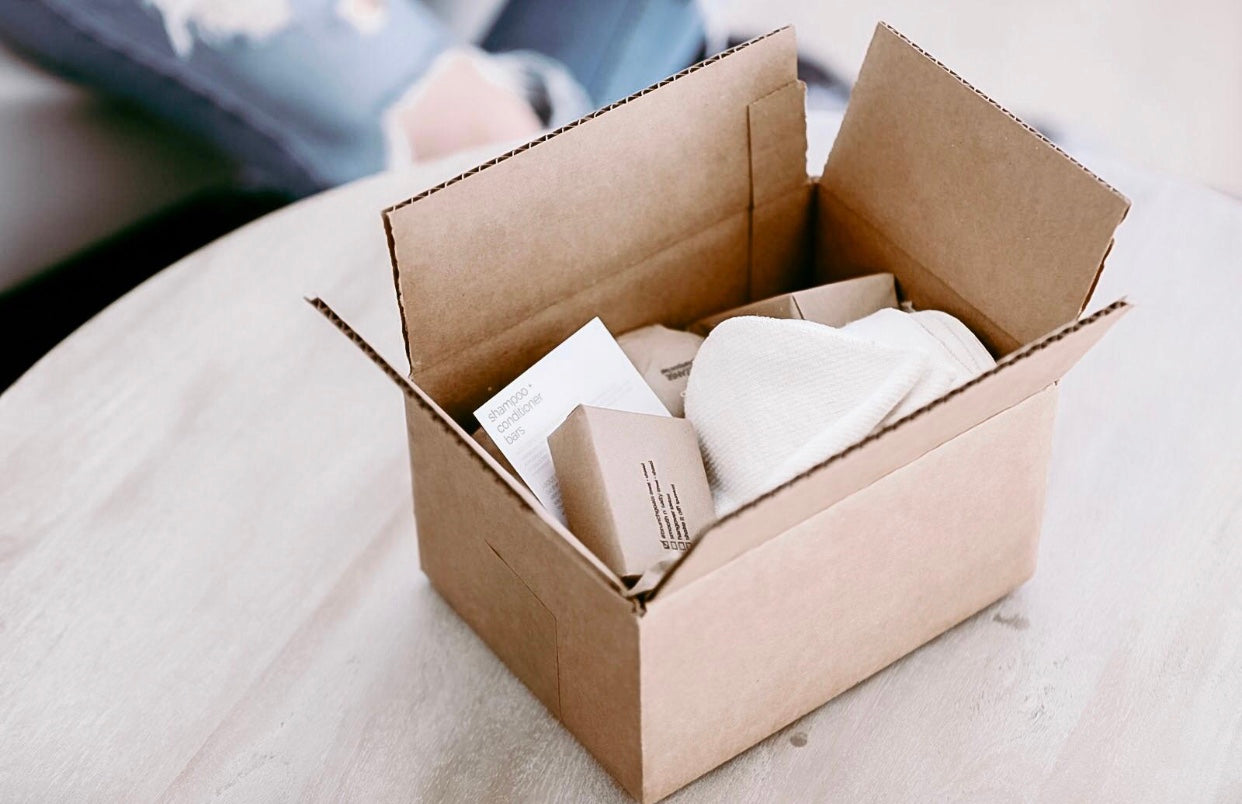
Arden and CFO Allison Teasdale are now hard at work finding fulfillment centers that can commit to their strict no-waste and no-plastic policy. In the meantime, beyond their online store, they have stockists all over North America that act as their distributors. Allison says they partnered with many retailers to ship large orders to local stores to reduce their carbon footprint while meeting the demands of their customers.
7. Reduce the size of your packaging
Holy Lamb Organics has come a long way since its early days, when founder Willow Whitton sold bedding out of a repurposed school bus.
The brand has attracted a loyal following that includes rave reviews from O, The Oprah Magazine and Diane Sawyer. Part of the appeal can be attributed to husband-and-wife team Jason and Mindy Schaefer’s steadfast adherence to a zero-waste production process.
“Our production model is carefully designed to make the most effective use of every cut, and any excess in a cut is used for something else,” Mindy says. The same goes for the company’s wool suppliers, who use cardboard rolls and kraft paper for their eco-friendly packaging, while scraps can be sent back to their suppliers to be repurposed.
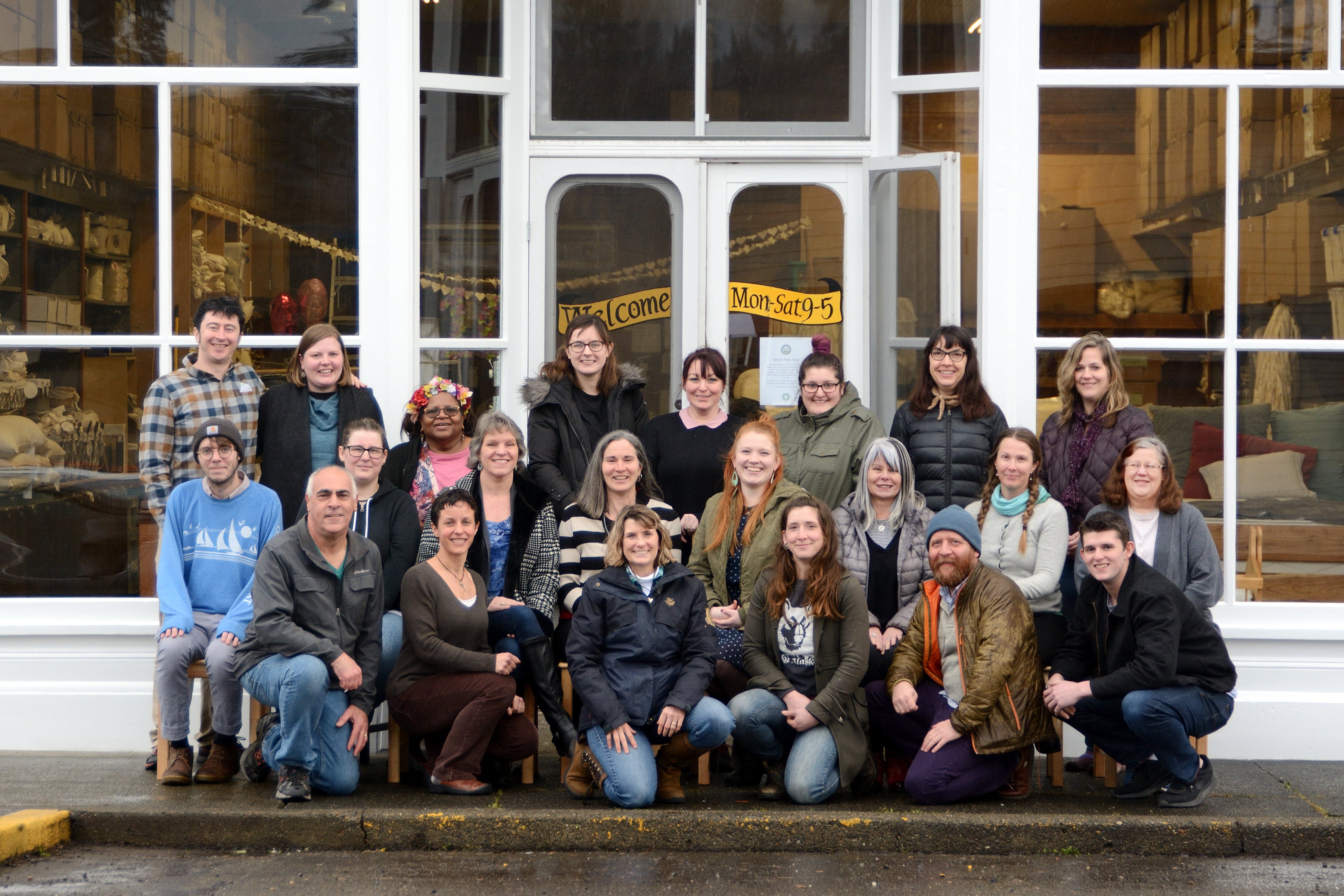
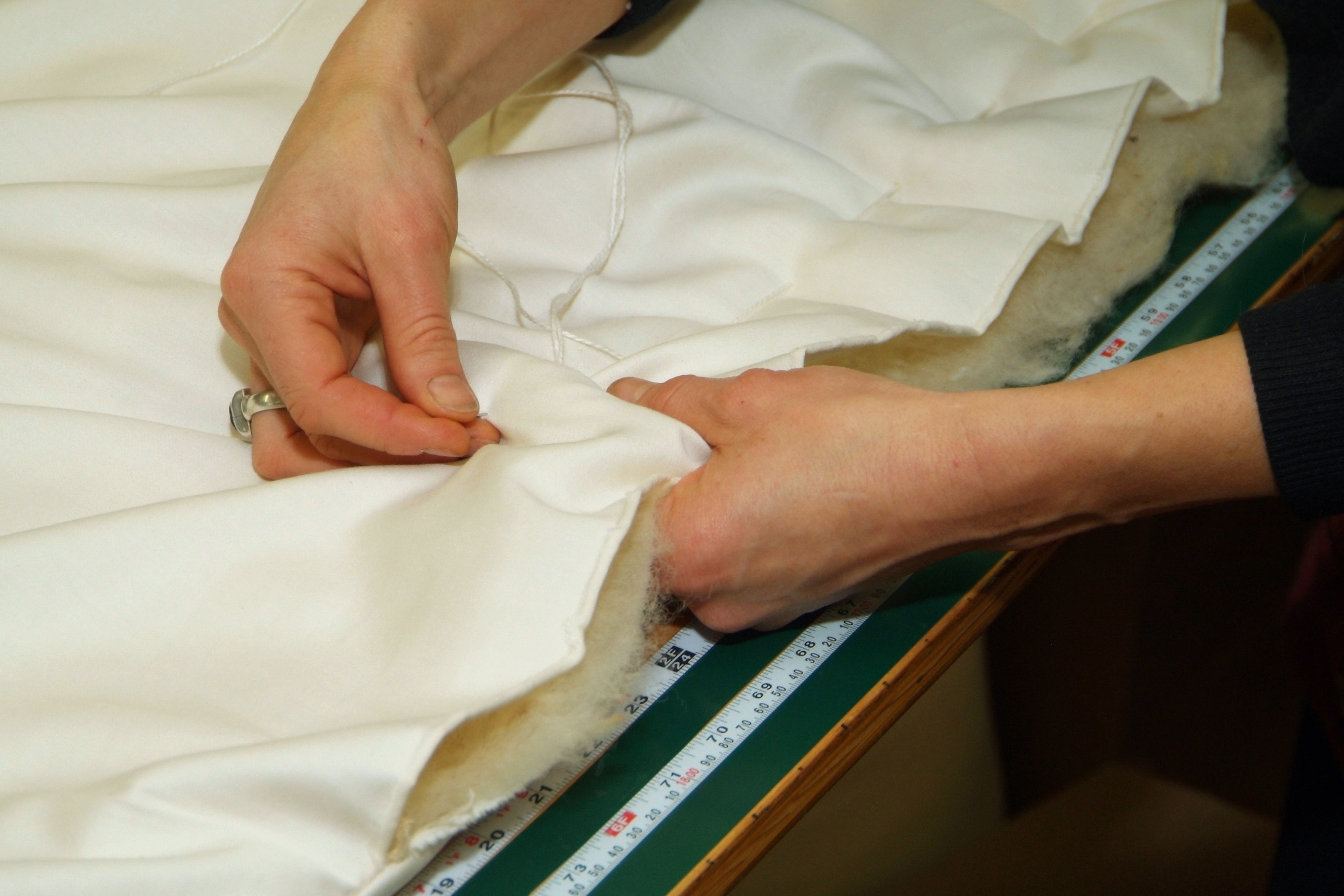
When it comes to sustainable shipping, the Holy Lamb Organics team has a knack for getting their items to fit into smaller packages—an eco-friendly packaging solution for larger items. “We keep our boxes as light as possible by not adding extra collateral or material, and vacuum sealing all mattresses so they ship smaller,” says Jason.
For all the other shipping and logistics components they cannot control, Mindy says the team uses a carbon offset program to help mitigate the effects.
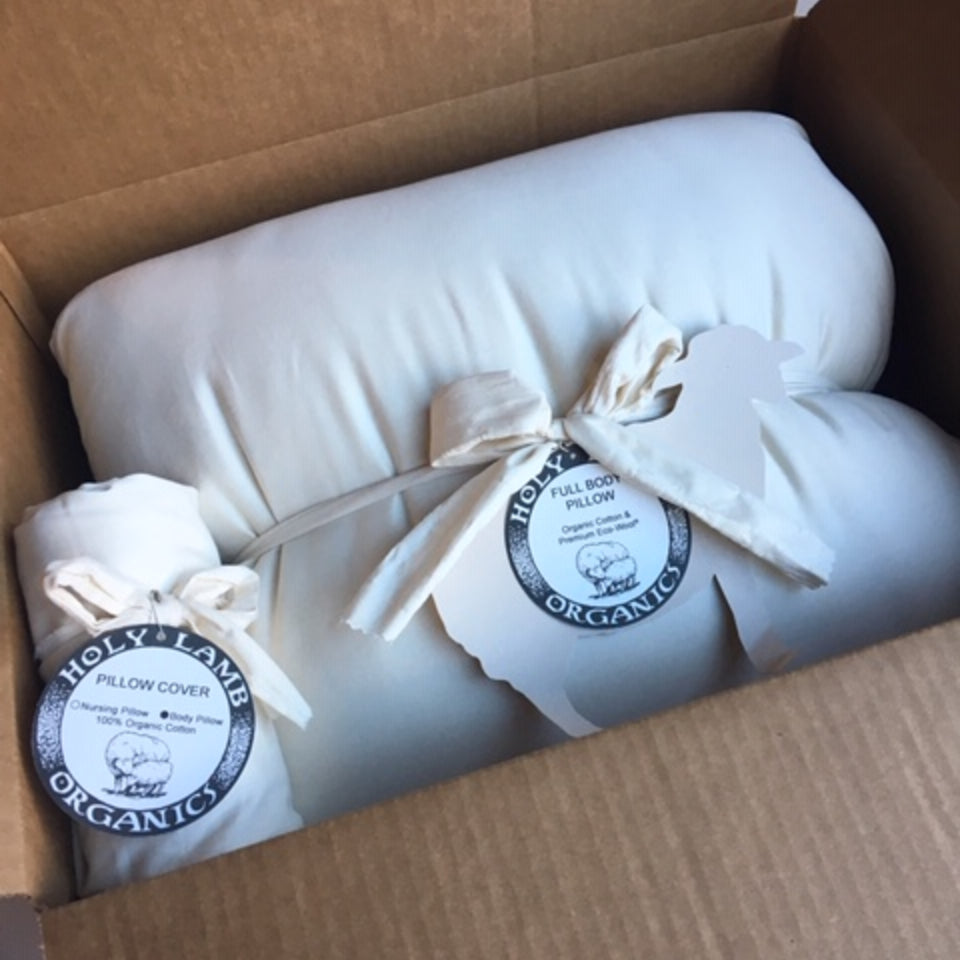
Up next for the team is exploring fulfillment partners who can help shorten the distance of each shipment by having their products stored at warehouses closer to the majority of their customers.
8. Use compostable packaging and mailers
A big trend in eco-friendly packaging right now is compostable and biodegradable packaging. Speaking to this growing area of focus for many retailers, Hero Packaging is a supplier dedicated to making 100% compostable mailers, which replace traditional hard to recycle poly mailers.

Life and business partners Anaita Sarkar and Vik Dave were originally running a fashion business when they realized how much plastic waste went into fulfilling their orders. “We were throwing away a lot of packaging from suppliers then having to repackage things again, adding to the world’s plastic and landfill woes,” Vic says.
So they took matters into their own hands. “We did some digging and found out that you can actually have compostable shipping labels and mailers to replace plastic,” says Vik. The material Hero Packaging uses is cornstarch and cassava based.
Now that business has taken off in their native Australia, Vik and Anaita have begun seeing a large portion of sales of their eco-friendly packaging from North America. To respond to newfound demand, they’re keen to start partnering with fulfillment centers in the US.
We were throwing away a lot of packaging from suppliers then having to repackage things again, adding to the world’s plastic and landfill woes.
Vik jokes that “being a business which is essentially located at the bottom of the Earth makes it difficult to viably ship heavy boxes to different parts of the world.” The couple says their goal for the current financial year is to further reduce their carbon footprint by shipping closer to their customers in the most sustainable way available.
Take sustainable steps with eco-friendly packaging
The common thread with all of these brands is a desire to be more environmentally responsible. For some, this commitment offered a way to connect with customers around shared values. For others, the time, energy, and research involved in sourcing sustainable packaging solutions just felt like the right thing to do.
Depending on your industry, location, and resources, the right packaging and shipping solutions for your business can vary widely. Whatever you choose for your business, know that your efforts will pay off as more and more customers are speaking up for the environment with their dollars.
